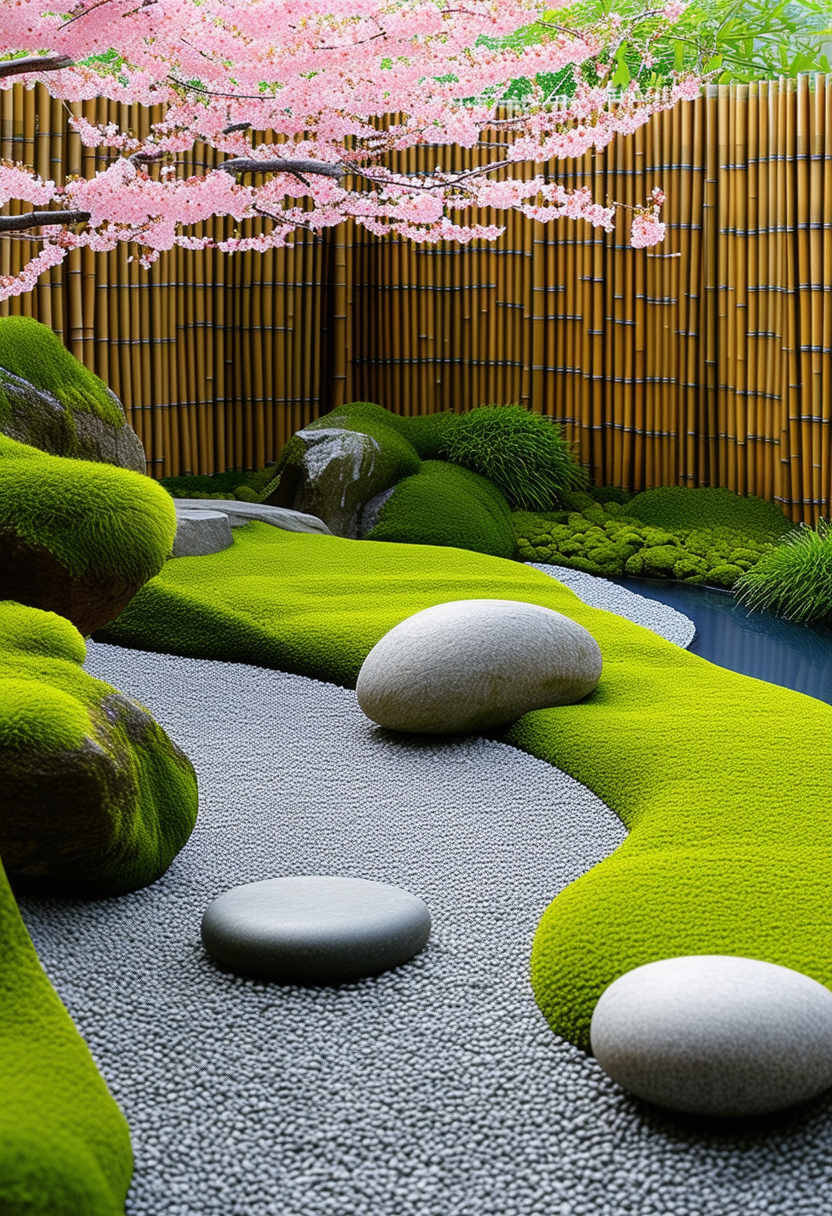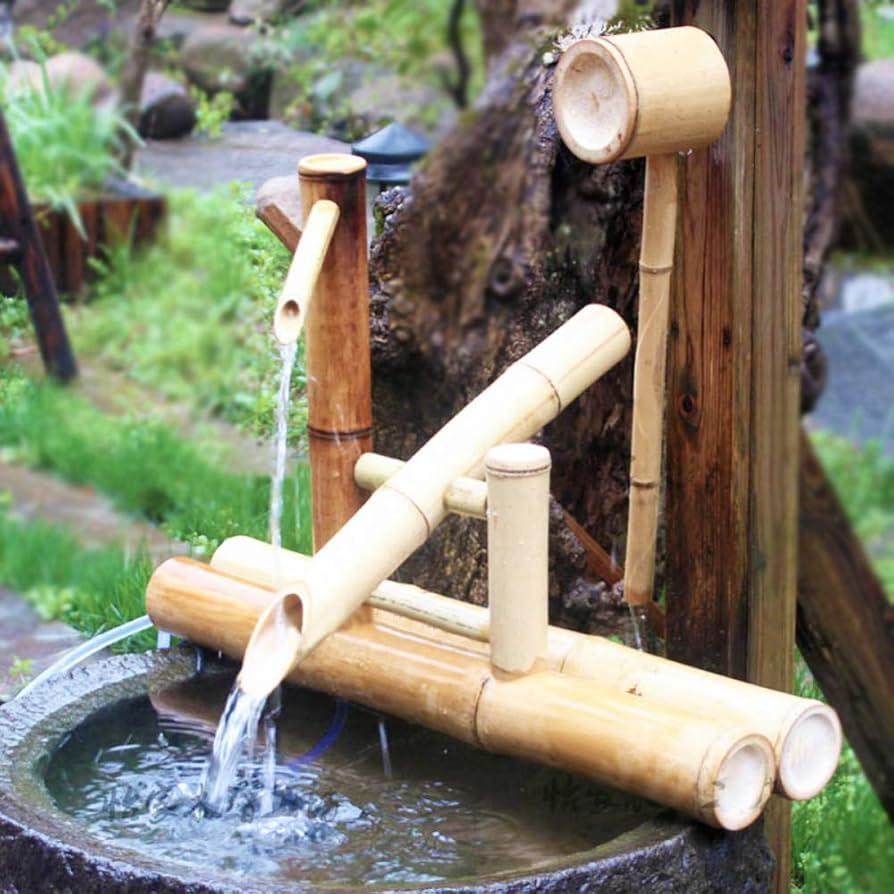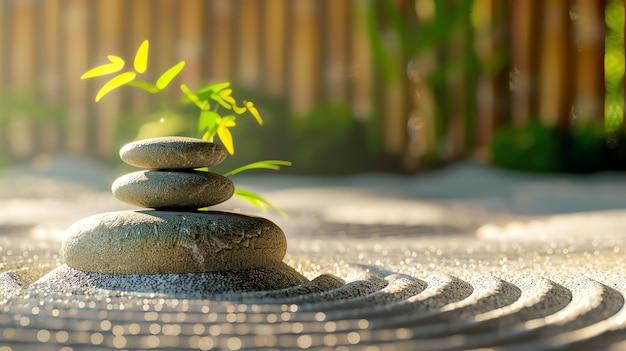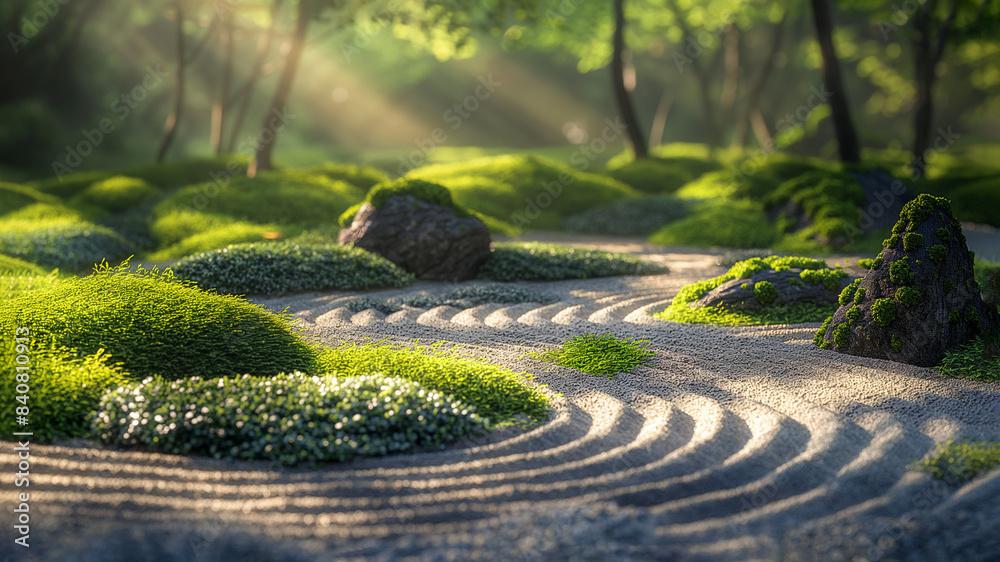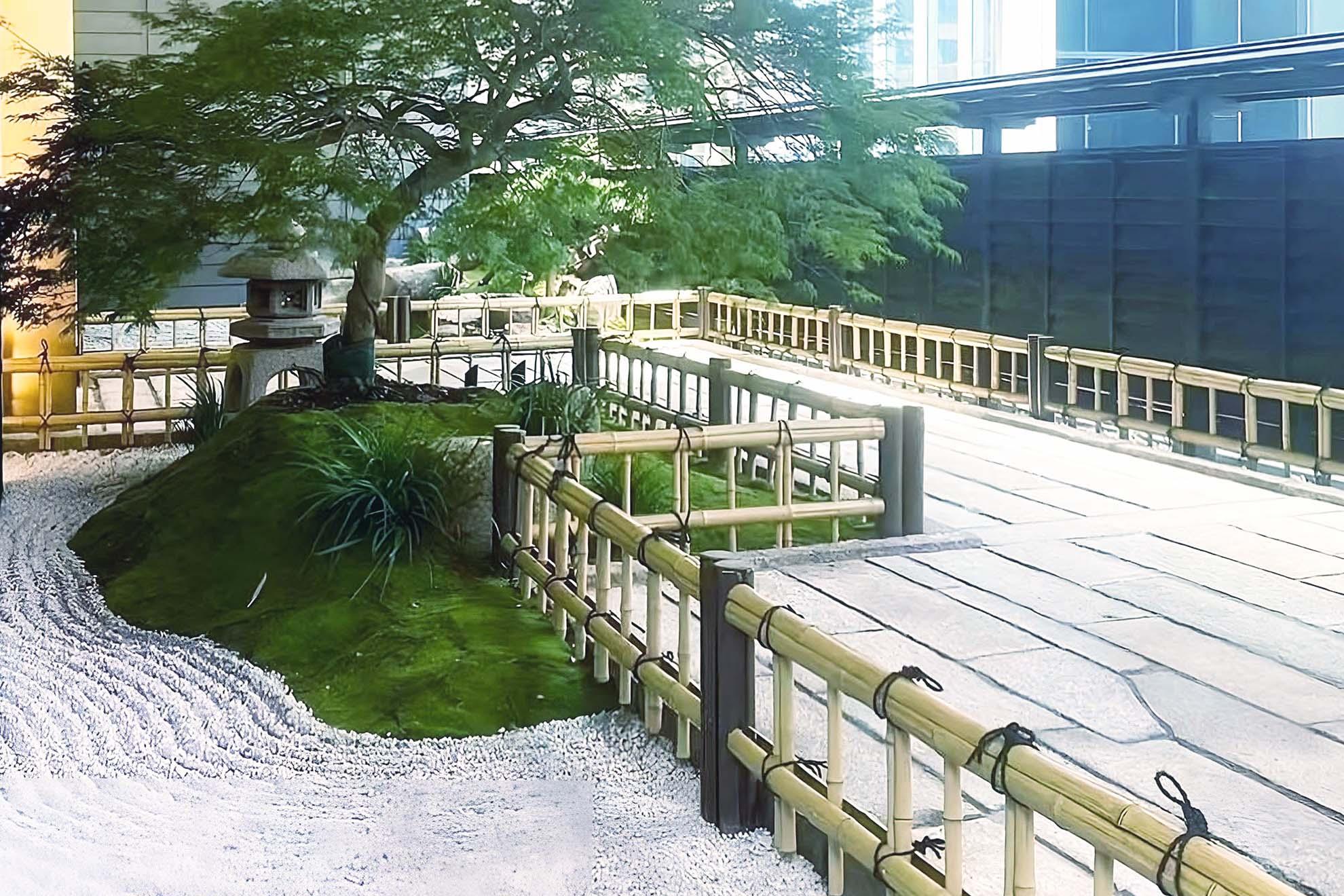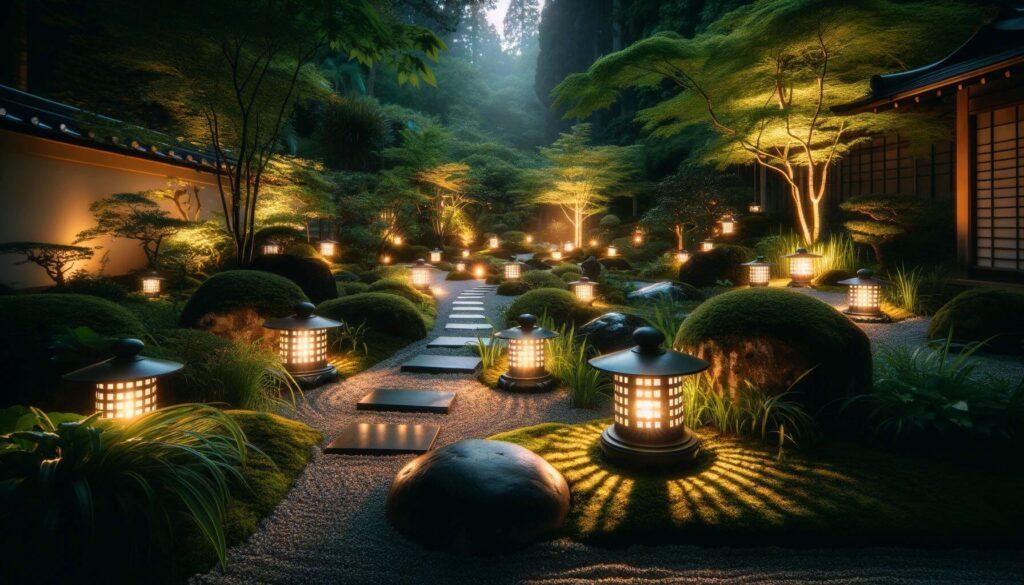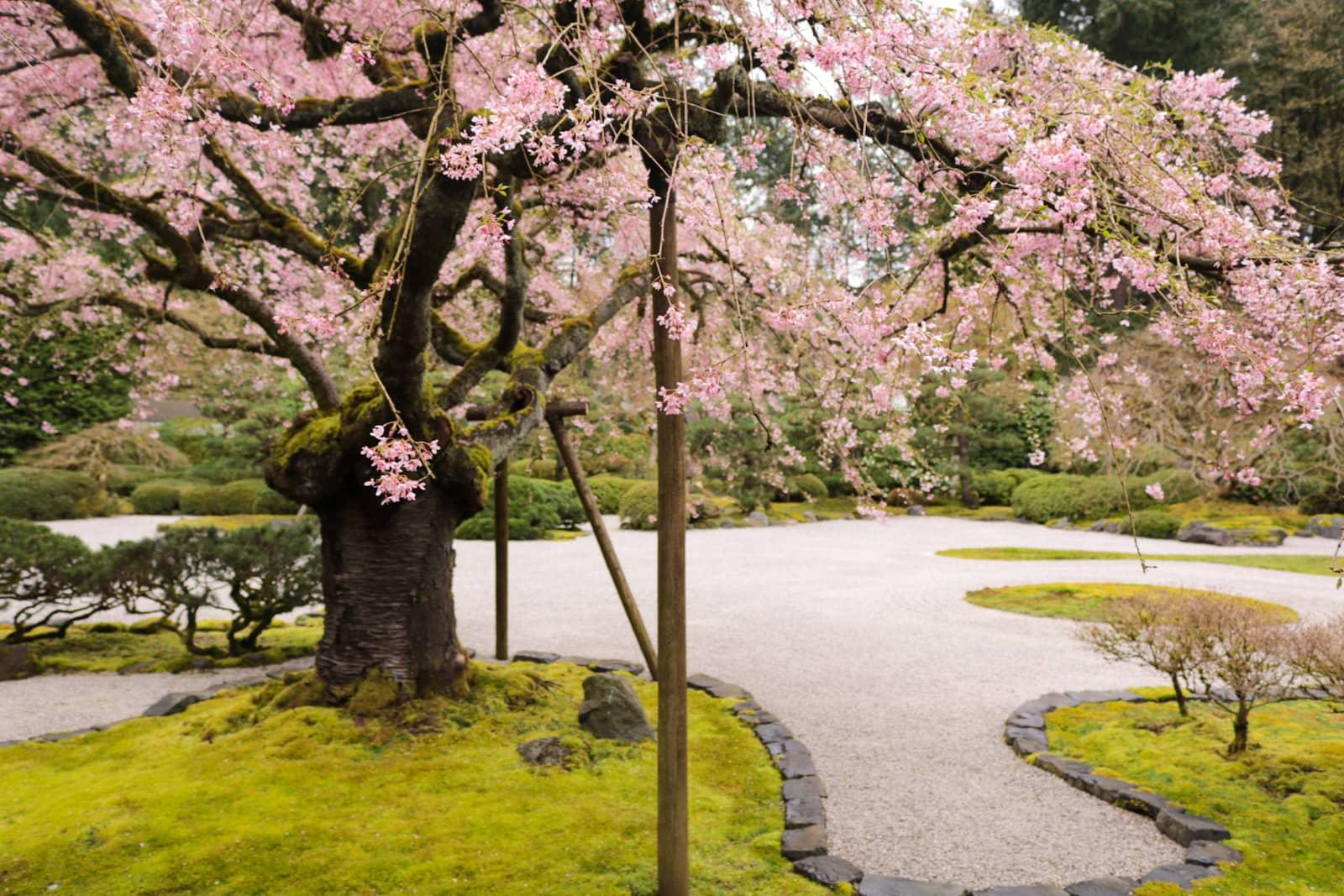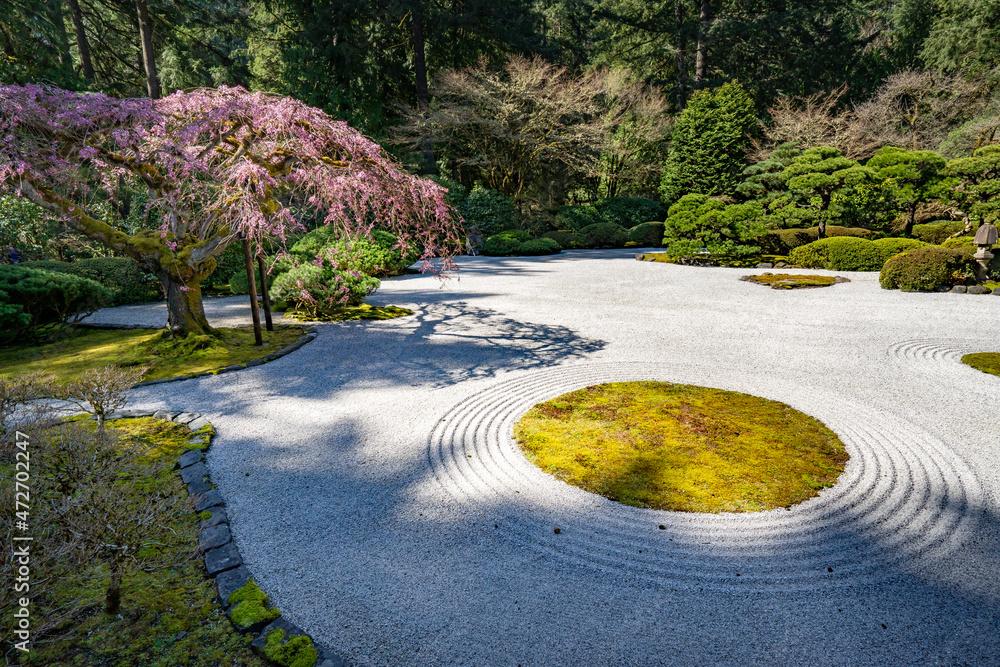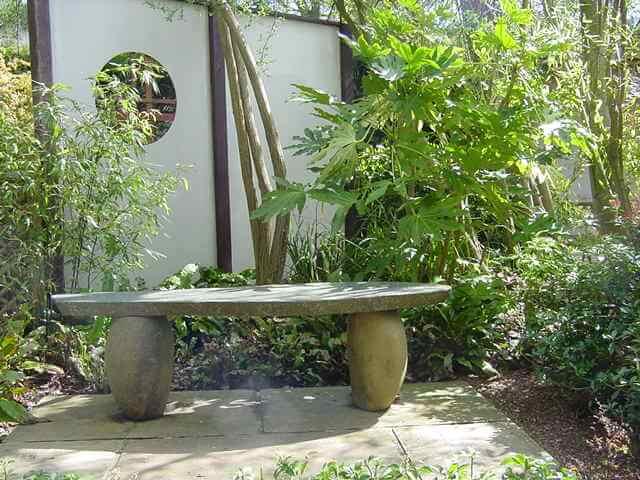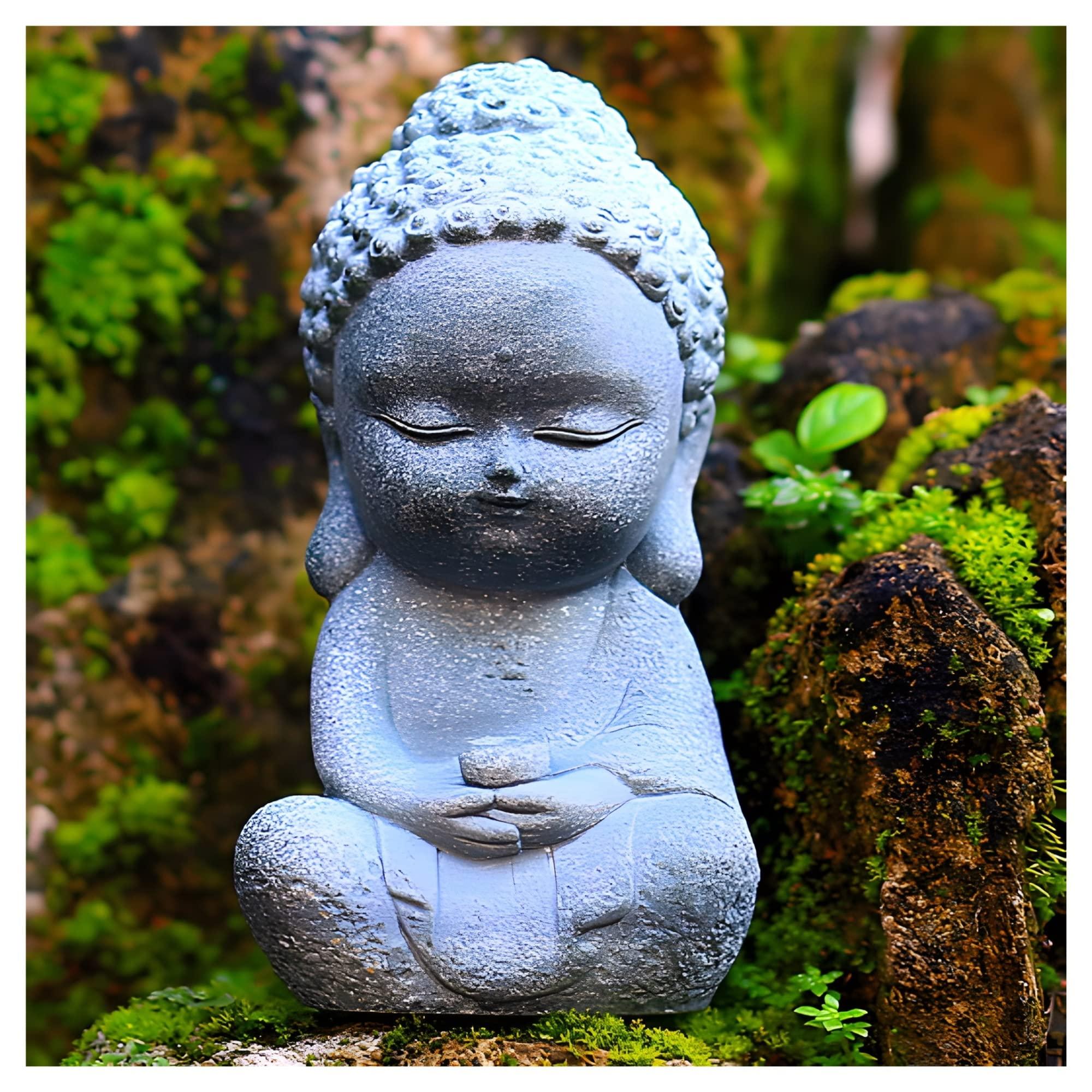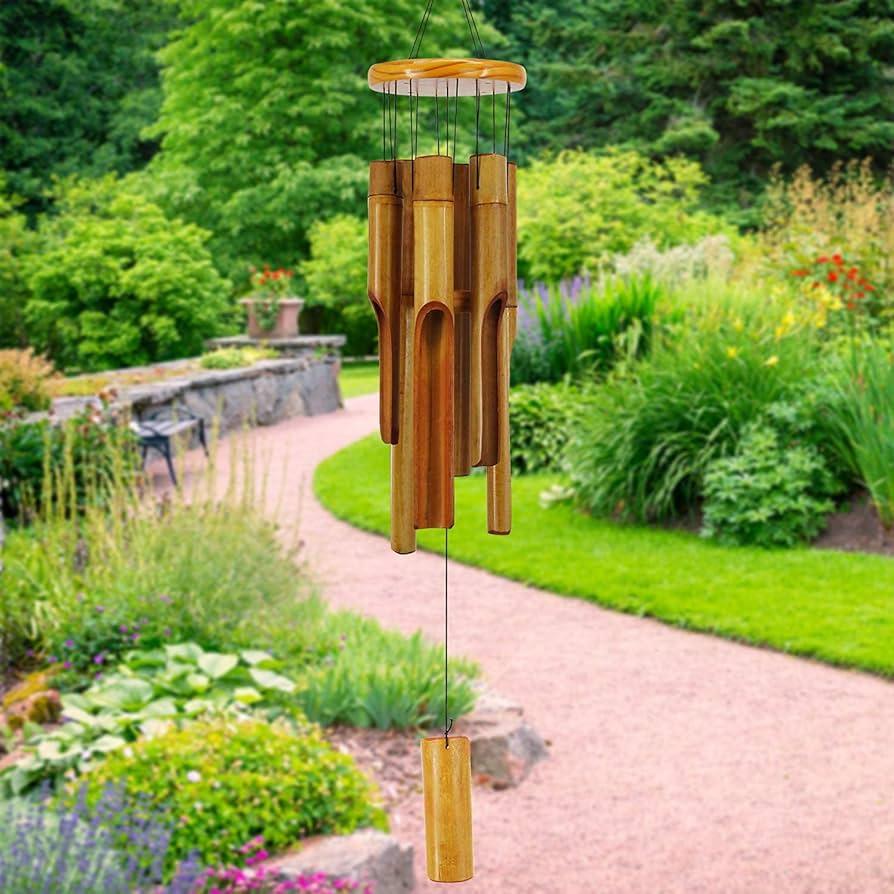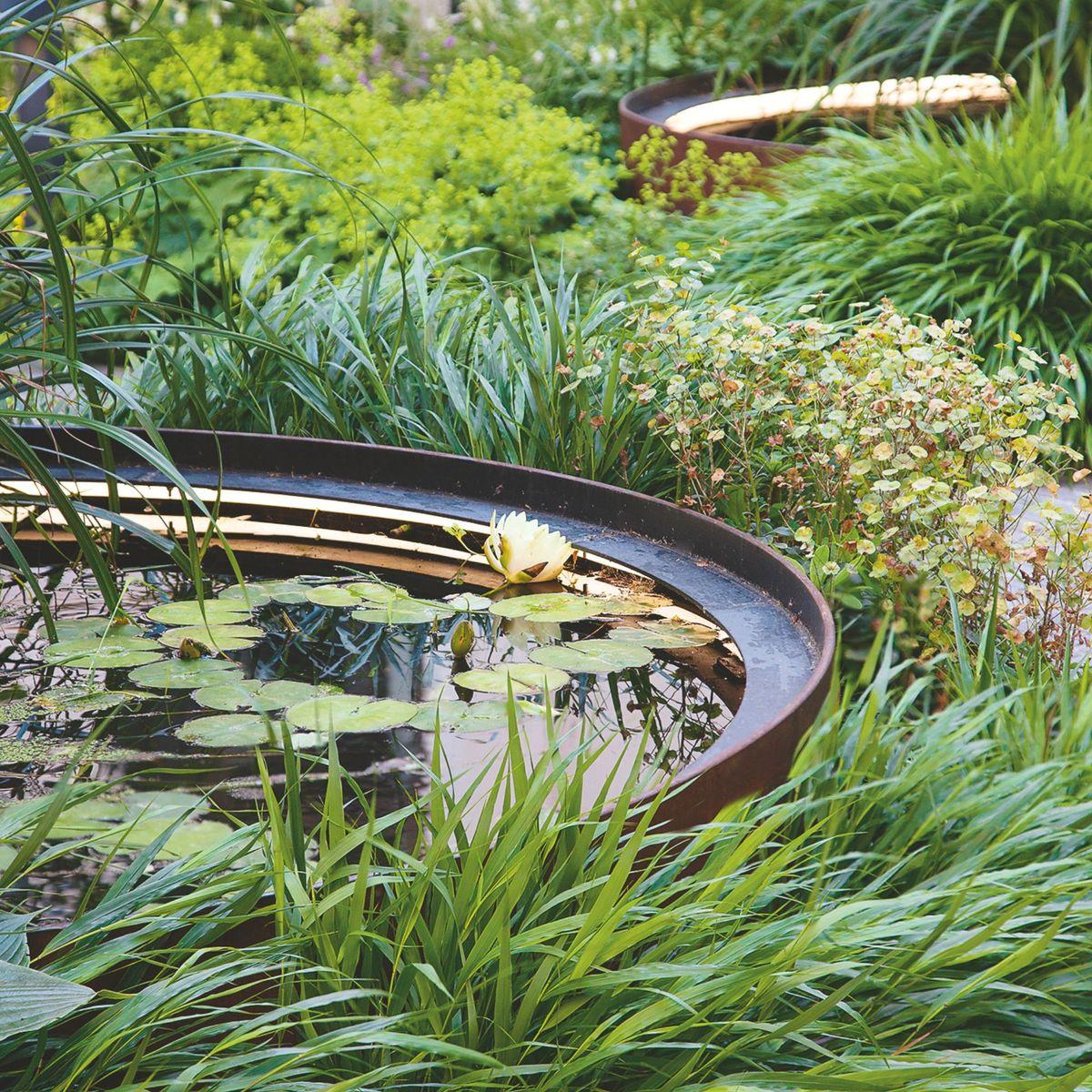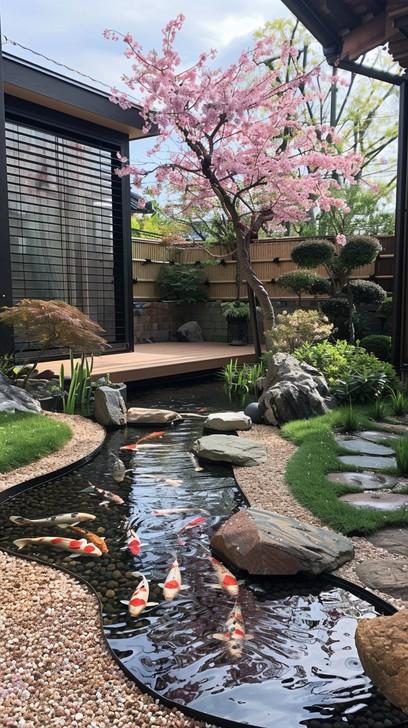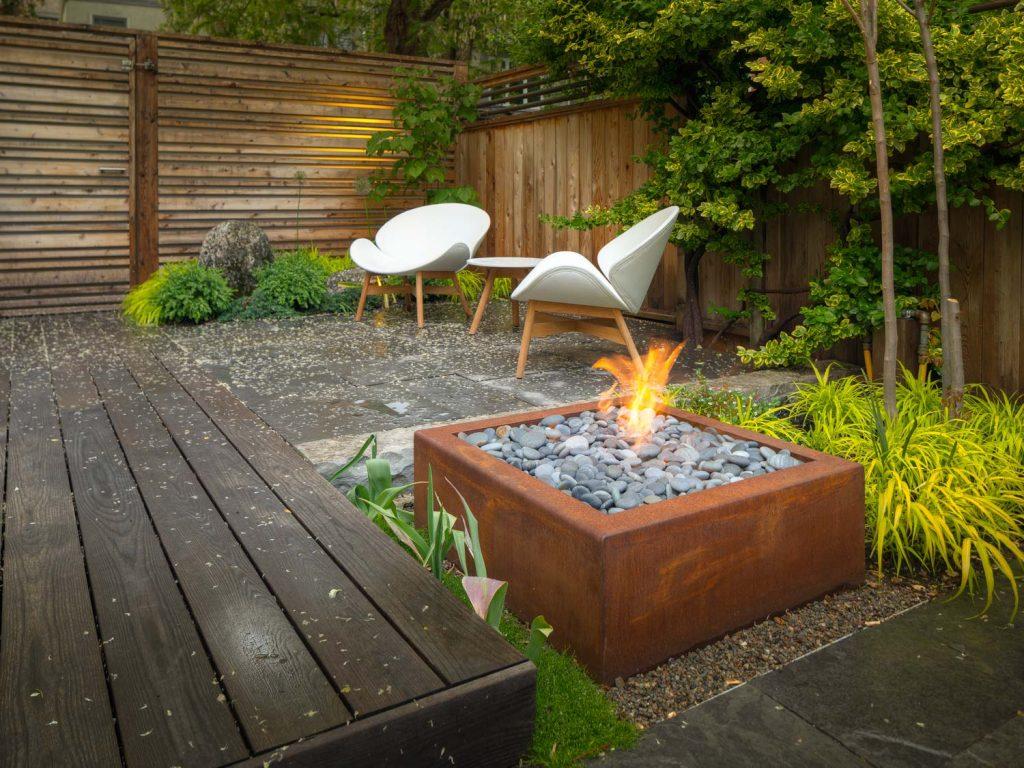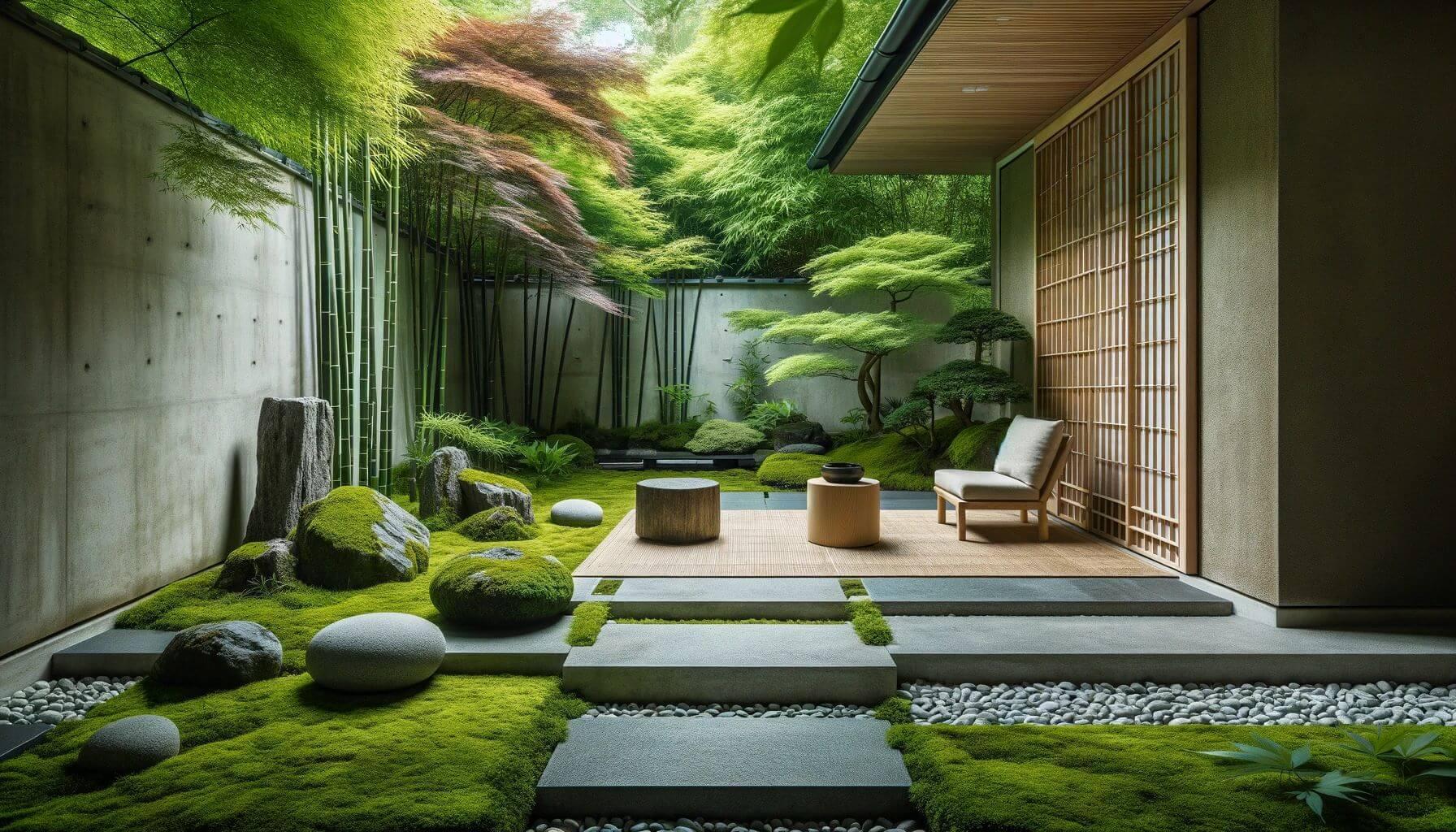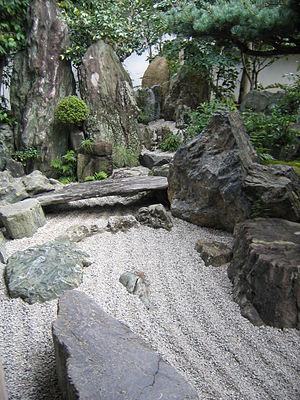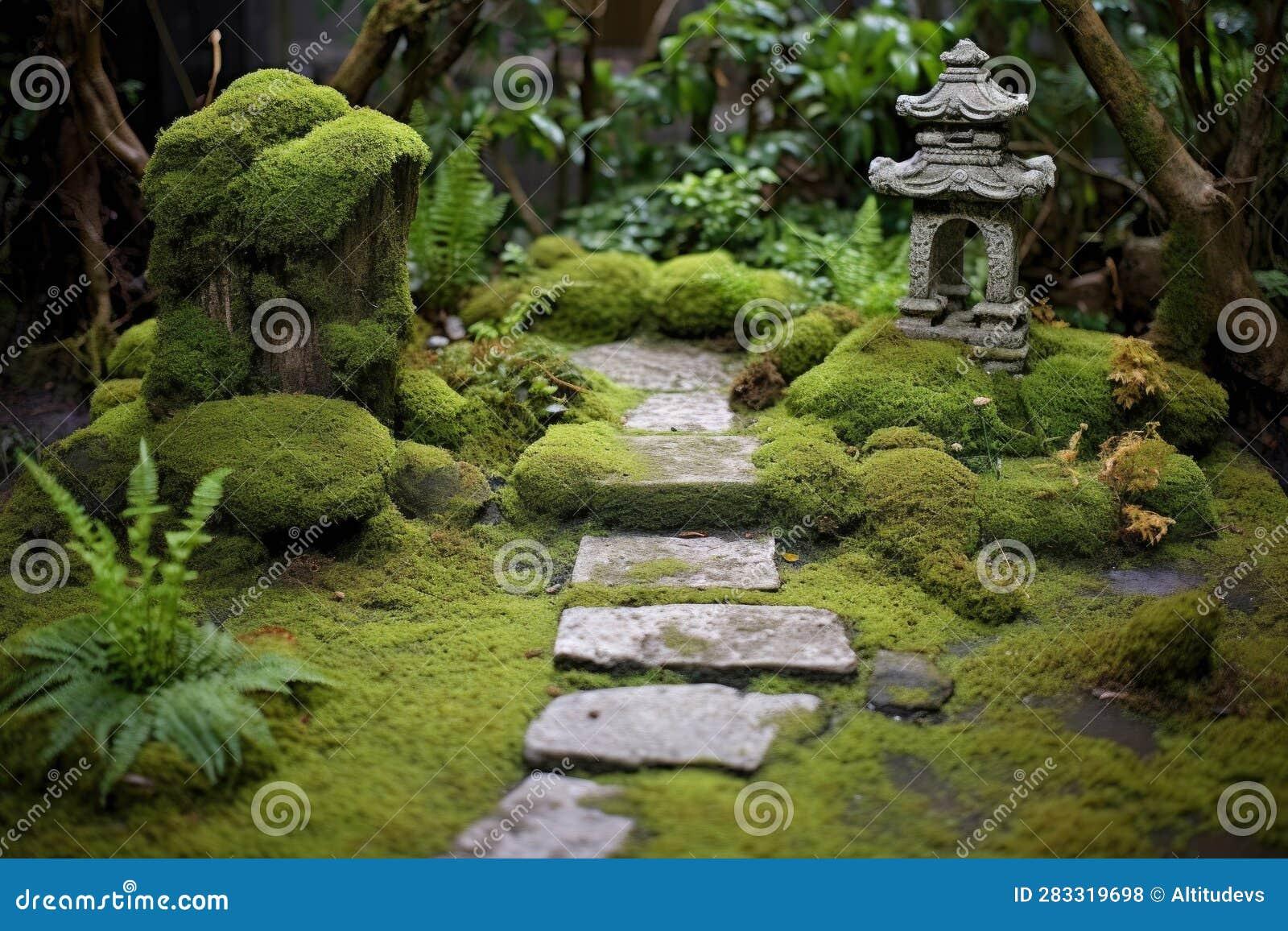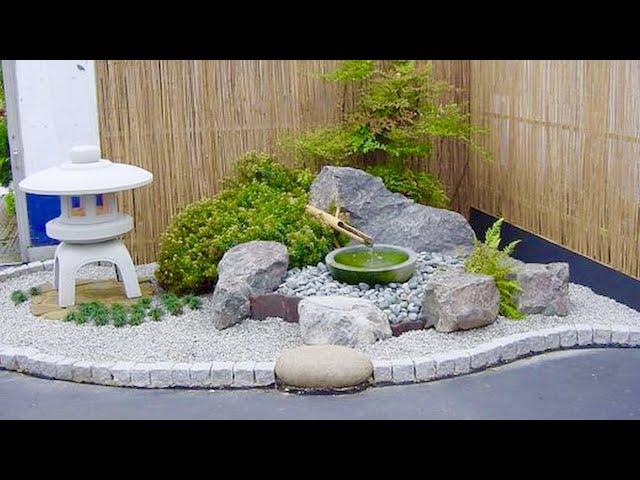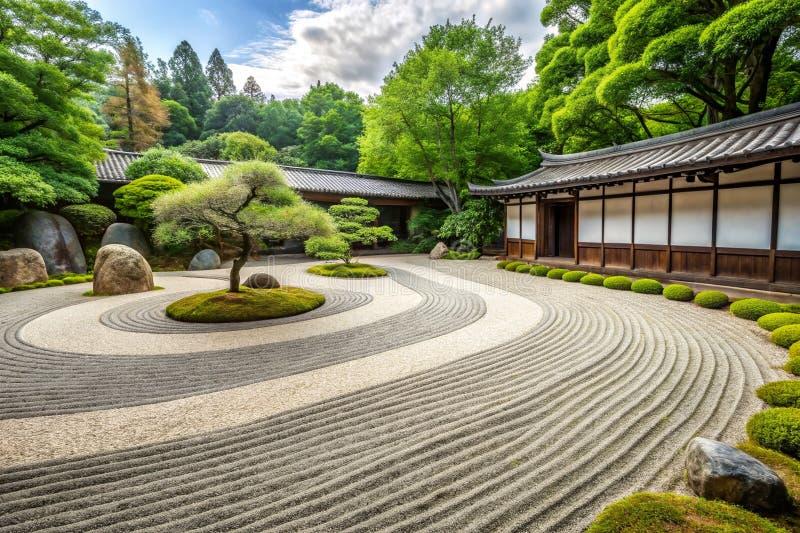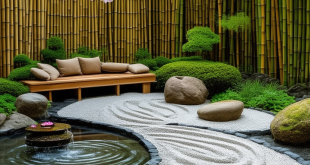Introduction:
In a world where chaos often reigns, creating a serene oasis in your own backyard can be a transformative experience. Zen gardens, with their minimalist design and calming elements, offer a perfect retreat for reflection and relaxation. Whether you’re looking to cultivate mindfulness or simply enhance the aesthetics of your space, the right elements can elevate your garden into a sanctuary of peace.
In this listicle, we present 23 tranquil elements that can enrich your Zen garden experience. From soothing water features to meticulously chosen stones, each item has been thoughtfully selected to promote harmony and tranquility. As you explore this curated collection, you’ll discover practical tips and ideas for integrating these components into your garden, fostering a deeper connection with nature, and ultimately creating a haven for contemplation and rejuvenation. Prepare to embark on a journey of tranquility as you enhance your Zen garden!
Soft, flowing water features create a calming sound in your Zen Garden
In the serene embrace of your Zen garden, the gentle sound of trickling water serves as both a natural melody and a meditative focal point. Incorporating soft, flowing water features not only enhances the auditory landscape but also connects you to the calming essence of nature. Consider adding features like small fountains, gentle streams, or miniature waterfalls to create a tranquil oasis that soothes your senses. The subtle ripples and glistening reflections of water can stimulate mindfulness and presence, encouraging a deeper interaction with your garden sanctuary.
To curate the perfect water feature, think about the style and placement that aligns with your overall garden theme. Here are some elements to consider:
- Natural Materials: Use stones, bamboo, or ceramic to harmonize with the garden’s organic feel.
- Sound Variation: Experiment with the height and flow rate of water to find the perfect sound—soft and whispering or gently splashing.
- Wildlife Attraction: Design features that encourage the presence of beneficial creatures like birds and dragonflies.
For a quick reference to water feature options, here’s a simple table illustrating various types and their characteristics:
| Water Feature Type | Description | Ideal Size |
|---|---|---|
| Tabletop Fountain | Compact and easy to maintain; fits well on a patio. | Small |
| Rock Waterfall | Creates a natural, cascading sound and looks visually stunning. | Medium to Large |
| Mini Stream | A flowing feature that adds movement and a soothing sound to your garden. | Variable, based on space |
The presence of water can spark a sense of tranquility and beauty, transforming your garden into a peaceful retreat. For inspiration and guidance on creating a harmonious environment, visit Gardenista.
Smooth, round stones symbolize balance and tranquility in a Zen Garden
In a Zen garden, smooth, round stones serve not merely as decorative elements but as profound symbols of balance and tranquility. Their seamless shapes and gentle contours evoke a sense of calm that resonates with the soul, inviting reflection and introspection. As you integrate these stones into your garden design, consider arranging them in a way that captures the eye effortlessly—allow them to lead the viewer’s gaze through the landscape, promoting a sense of flow and harmony. The rhythm of the garden can be enhanced by using various sizes and shades of stones, each providing a unique texture that complements the overall aesthetic.
To amplify the peaceful vibe, incorporate a variety of stones that exhibit different properties—polished finishes for a sleek and modern touch, or weathered varieties that tell stories of time. These stones can serve as focal points or subtle accents, offering visitors a moment of pause when contemplated. When placed in a shallow bed of white sand or gravel, they can signify the gentle balance between nature and design. To delve deeper into the delicate art of arranging these natural elements, you might explore resources on landscaping with stones at gardeningknowhow.com.
Lush green moss adds a vibrant touch to your Zen Gardens landscape
Incorporating lush green moss into your Zen garden creates an enchanting contrast with rocks and gravel, serving as a soothing backdrop that invites tranquility. The vibrant hues of moss not only enhance the aesthetic appeal but also symbolize nature’s resilience and harmony. Its soft texture underfoot offers a sensory experience that deepens the connection with the earth, reminding garden enthusiasts to embrace the present moment. By carefully layering moss between stones or amid sand, you can craft a visually striking tapestry that represents the delicate balance of nature.
With various types of moss available, such as Sheet Moss, Cushion Moss, and Reindeer Moss, you can curate a unique landscape that reflects your personal vision of peace. Each type of moss offers different shades and textures, allowing for an intricate interplay of color and form in your garden. Moreover, adding a variety of moss can create distinct microhabitats, attracting gentle visitors like butterflies and small birds, further enhancing the serenity of your space. For inspiration on incorporating moss into your Zen garden, visit Gardenista for expert tips and guidance.
Bamboo fences create privacy, enhancing the serene environment of your Zen Garden
Bamboo fences are a quintessential element in many Zen gardens, elegantly framing the landscape while offering an inviting atmosphere of tranquility. These natural barriers provide privacy, allowing you to immerse yourself fully in the peaceful surroundings without distractions from the outside world. The rich, earthy tones of bamboo complement the varied colors of plants and stones in your garden, merging seamlessly with nature. When designed thoughtfully, bamboo can create a sense of enclosure, acting as a protective shield that fosters introspection and mindfulness as you meditate or reflect.
Moreover, the soft rustling of bamboo in the wind contributes to the serene ambiance, reinforcing the gentle sounds of nature that are central to the Zen experience. To maximize the aesthetic appeal of your garden, consider incorporating various heights and arrangements in your bamboo fencing. This not only enhances visual interest but also allows for the cultivation of climbing plants or vines, adding layers of greenery and texture. As you design your sanctuary, remember that the materials you choose significantly impact the overall zen feeling, inviting peace and relaxation each time you step inside your garden. For more design ideas, visit Garden Design.
Zen Garden lanterns cast gentle light, guiding you through peaceful meditation at night
Imagine stepping into your Zen garden at night, where the atmosphere is transformed by the warm, inviting glow of beautifully crafted lanterns. These exquisite lights not only enhance the aesthetics of your garden but also act as gentle guides, illuminating your path and creating an ethereal ambiance. With their soft radiance, lanterns help cultivate a calming environment, allowing your mind to settle into a focused state for meditation. Consider incorporating Japanese stone lanterns or paper lanterns that complement the natural elements of your garden, fostering a sense of tranquility as they flicker softly in the night breeze.
To fully embrace the enchanting experience of a lantern-lit meditation, you might want to position these lights strategically around small rock formations or serene water features. This layered illumination highlights the beauty of your garden’s elements while inviting peaceful reflection. When designing your lighting layout, consider varying the heights of the lanterns to create depth and intrigue. Enhance your meditation practice with lanterns that feature features like solar power for sustainability or adjustable brightness to suit different moods. For those seeking more inspiration on garden lighting, take a look at resources from Garden Design to explore further ideas.
Delicate cherry blossoms bring a touch of beauty to your Zen Garden
Incorporating delicate cherry blossoms into your Zen garden can elevate its beauty to serene new heights. These enchanting blossoms not only symbolize the fleeting nature of life but also create a gentle, calming atmosphere perfect for meditation and reflection. Imagine the soft pink petals fluttering down like snow, creating a delicate carpet that enhances the tranquility of your outdoor sanctuary. To bring this vision to life, consider planting a few cherry blossom trees or even utilizing bonsai versions if you have limited space. Their seasonal bloom can make your garden feel alive with beauty, providing a picturesque backdrop for mindfulness practices.
To fully embrace the charm of cherry blossoms, create a designated seating area beneath their graceful branches. This cozy spot can be adorned with traditional Japanese elements such as tatami mats and low, lacquered tables where you can enjoy tea or contemplate your thoughts. The combined effect of these muted details paired with the striking cherry blossom display invites a deeper connection with nature. Don’t forget to incorporate the sounds of water or soft wind chimes nearby to harmonize with the visuals, making your Zen garden a true refuge for the senses. For more ideas on enhancing your outdoor space, visit japan.travel.
Raked gravel patterns evoke waves, representing the flow of energy in your Zen Garden
The delicate art of raking gravel patterns in a Zen garden serves as a visual metaphor for the fluidity and rhythm of nature. As you rake intertwined lines radiating outward like gentle waves, you not only craft a serene aesthetic but also invite a deeper connection to the energy that flows through the universe. Every stroke can be a soothing mantra, echoing the natural dynamism of water, encouraging tranquility and mindfulness. This tactile engagement with the gravel allows practitioners to embody a sense of presence, anchoring their thoughts and intentions in the moment.
Creating wave-like patterns in your gravel can be achieved through various techniques, encouraging the exploration of personal expression within the confines of simplicity. Using tools like a bamboo rake or a simple stick, you can easily manipulate the gravel to form intricate designs that symbolize the movement of energy. Consider incorporating elements that complement the flow, such as pebbles placed strategically within the raked patterns or boulders representing solid anchors amidst the fluidity. Enhance the experience further by adding a water feature, bringing the soothing sound of flowing water, inviting conversations on balance and serenity. To explore more on designing Zen gardens, visit japanesegardens.com.
A sturdy bench invites quiet contemplation within the serenity of your Zen Garden
Picture yourself seated on a carefully crafted bench nestled within the lush greenery of your Zen garden. A well-designed bench serves as the perfect throne for moments of solitude, enveloping you in tranquility. Choose options made of weather-resistant materials like teak or cedar to ensure durability while maintaining a connection to nature. Surround your bench with gentle plants, like bamboo or moss, that whisper soft secrets to the breeze, creating a natural backdrop that invites relaxation. Consider adding soft cushions in muted colors to enhance comfort, allowing you to lose track of time as you contemplate the beauty of your surroundings.
You might also think about incorporating a small side table nearby, perfect for holding your favorite tea or a journal where you can capture fleeting thoughts. To enrich the atmosphere, place lanterns that cast a warm glow during twilight hours, inviting a magical ambiance as day transitions into night. The strategic arrangement of stones or pebbles around your bench can serve both aesthetic and practical purposes, guiding the eye and offering a path that beckons exploration. A sturdy bench, integrated thoughtfully into your garden, transforms sterile space into a peaceful retreat that beckons you to sit, breathe, and find harmony.
| Materials for Your Bench | Features to Consider |
|---|---|
| Teak | Weather-resistant |
| Cedar | Natural aroma |
| Recycled plastic | Eco-friendly |
| Metal | Contemporary style |
For inspiration on garden designs and materials, visit Garden Design.
Succulent plants require minimal care, making them ideal for your Zen Garden
Embracing succulent plants in your Zen Garden offers a picturesque balance of beauty and simplicity, resonating with the calming principles of minimalism. These resilient plants are not only aesthetically pleasing but also remarkably easy to care for, allowing your garden space to thrive with very little effort. With their diverse shapes and colors, succulents can be arranged in various formations, creating a harmonious landscape that invites relaxation and mindfulness. Here are some succulent varieties you might consider:
- Echeveria – Rosette-shaped and vibrant, perfect for adding color.
- Aloe Vera – Known for its medicinal properties and sculptural form.
- Jade Plant – Symbolic of good luck, with thick, glossy leaves.
- Hens and Chicks – Hardy and easy to propagate, ideal for beginners.
Incorporating succulent plants not only enhances the visual appeal of your Zen Garden but also promotes a sense of tranquility. Their low water requirements and adaptability to different environments make them the perfect companions for a stress-free gardening experience. For those looking to elevate the aesthetic even further, consider pairing succulents with natural stone or gravel as a base layer. This complementary texture can beautifully frame your plants while maintaining an organic look. To ensure variety, you could mix and match the succulents in a themed layout, organized as follows:
| Succulent Type | Watering Needs | Sunlight Requirements |
|---|---|---|
| Echeveria | Low | Full Sun |
| Aloe Vera | Low | Bright Indirect |
| Jade Plant | Moderate | Indirect Light |
| Hens and Chicks | Low | Full Sun |
For additional tips on cultivating a thriving succulent garden, you can explore resources like succulentsandsunshine.com.
Thoughtfully placed stepping stones add a sense of journey throughout your Zen Garden
Stepping stones not only provide a practical pathway but also invite contemplation and exploration as one traverses through your Zen Garden. Thoughtfully placed stones, whether they are uniform slabs or natural, uneven rocks, create an organic flow that encourages mindfulness. As you walk along these stones, each step can symbolize a moment of reflection or a transition in your journey. This connection with the ground beneath your feet fosters a deeper appreciation for the beauty surrounding you, enhancing the peaceful ambiance of the garden.
When designing your garden, consider varying the distances between the stepping stones to create a sense of mystery and discovery. You might choose to arrange them in a meandering line, leading visitors through clusters of plants or alongside tranquil water features. Additionally, incorporating contrasting textures and materials can add even more depth to the pathway. Think about combining smooth, polished stones with rough, weathered ones or even integrating wooden planks for an unexpected element. The careful arrangement of these stones transforms a mere walking path into a symbolic journey, inviting everyone to indulge in the serenity that a Zen Garden embodies. For more inspiration on garden design, visit Garden Design.
A small Buddha statue imparts tranquility and mindful awareness in your Zen Garden
Incorporating a small Buddha statue into your Zen garden serves as a gentle reminder of peace, mindfulness, and the art of living in the moment. These statues often embody serenity and wisdom, inviting you to pause and reflect as you stroll through your garden sanctuary. Placing a Buddha at a focal point—perhaps near a tranquil water feature or surrounded by lush greenery—can create an oasis of calm where worries dissipate, allowing your mind to embrace the present. By choosing a design that resonates with you, whether abstract or traditional, the statue becomes not just decor but a significant element of your meditative space.
The presence of a Buddha statue can enhance your mindfulness practice in various ways. Here are a few aspects that make this element particularly impactful:
- Symbol of Enlightenment: Each glance at the statue can inspire thoughts of balance and equanimity.
- Focus for Meditation: Use the statue as a focal point during meditation, helping to quiet the mind and deepen your connection.
- Encourages Reflection: The calm demeanor of the statue invites introspection, fostering a deeper understanding of yourself.
For those who nurture a love for symbolism, consider creating a small Buddha-themed corner with additional elements like stones, lanterns, or even bonsai trees, enhancing the overall tranquility of your garden. This intentional arrangement cultivates a space that not only beautifies your surroundings but also nourishes your spirit and encourages mindful awareness.
Wind chimes create gentle melodies, enriching your Zen Gardens peaceful atmosphere
Adding wind chimes to your Zen garden introduces a melodious quality that enhances the serene ambiance. As the gentle breeze flows through the garden, the chimes produce soft, harmonious sounds that can stir the spirit and promote mindfulness. The variety of tones and pitches available, from classic bamboo to shimmering metal, allows you to customize the auditory atmosphere to suit your personal style. Consider hanging them near a seating area or a path, so as you walk or meditate, the enchanting sounds create a soothing backdrop, drawing you further into a state of relaxation.
The placement of wind chimes can be just as important as their selection. Positioning tips include:
- Near Water Features: The combination of chimes and flowing water creates a symphony of tranquility.
- Under Trees: Trees provide shade and movement, allowing the chimes to catch the breeze naturally.
- In Open Spaces: A clear area lets the musical notes resonate without obstruction.
Additionally, consider the material of your wind chimes: whilst metal chimes produce bright and clear sounds, wooden and bamboo chimes offer a softer, more earthy tone. Explore various styles and sizes from sites like Christmas Central to find the perfect chimes for your garden’s personality.
Outdoor cushions provide comfort for relaxing in your Zen Garden’s natural surroundings
Outdoor cushions can significantly elevate the comfort level of your Zen Garden, allowing you to fully embrace the tranquility of its surroundings. Imagine sinking into a plush cushion while sipping herbal tea, listening to the gentle rustle of leaves and the distant sound of flowing water. These cushions not only offer a cozy place to sit but also enhance the aesthetic appeal of your garden with their vibrant colors and soothing textures. When choosing your cushions, consider options made from durable, weather-resistant materials that can withstand the elements while providing a serene seating experience.
To create the ultimate relaxing area in your Zen Garden, opt for cushions that complement your existing decor while inviting you to linger longer. You can layer different sizes and shapes to create a visually appealing nook or arrange them around a small table for a peaceful tea ceremony with friends. Don’t forget to take advantage of nature’s palette; choose earthy tones and organic fabrics that blend harmoniously with the flora around you. With just a few thoughtfully placed cushions, you can transform a simple garden space into a restorative retreat, encouraging mindfulness and relaxation in every glance and gesture. For more ideas on garden aesthetics, explore Gardenista.
Aromatic herbs release calming scents, enhancing your Zen Garden experience
Incorporating aromatic herbs into your Zen Garden not only contributes to its visual appeal but also offers an aromatic experience that can elevate your sense of tranquility. Lavender, known for its soothing properties, can help reduce anxiety and promote better sleep, making it an ideal choice for your serene space. Peppermint, with its invigorating scent, refreshes both the mind and spirit, making it wonderful for enhancing focus during meditation. Other excellent candidates include basil and sage, each bringing unique scents that foster a calming atmosphere and encourage mindfulness.
When choosing which herbs to plant, consider creating a sensory herb corner in your garden. A small herb table can serve as a centerpiece, allowing easy access to your favorites. You might stock it with:
| Herb | Scent Profile | Benefits |
|---|---|---|
| Lavender | Floral, Sweet | Reduces anxiety |
| Peppermint | Minty, Cool | Refreshes mind |
| Basil | Herbaceous, Sweet | Improves mood |
| Sage | Earthy, Warm | Enhances clarity |
By surrounding yourself with these delightful scents, you create an immersive environment that reinforces your Zen practices. For more insights on how to cultivate your calming herb corner, visit gardeningknowhow.com for tips and inspiration.
Elegant koi fish gracefully swim, symbolizing tranquility in your Zen Garden pond
Incorporating koi fish into your Zen Garden pond instantly elevates the ambiance, inviting a sense of serenity and grace. These vibrant creatures not only enhance the visual appeal but also embody the principles of tranquility and harmonious living. Koi fish are known for their calm demeanor, gliding gracefully through the water and creating a mesmerizing dance that captivates the soul. Their presence encourages mindfulness and reflection, inviting observers to slow down and connect with nature. Creating a peaceful environment, the gentle ripples they leave in their wake seem to whisper secrets of calm and introspection.
To harmonize your space, consider these elements when adding koi fish to your garden:
- Color Variety: Choose a mix of koi in various colors to create a vibrant aesthetic.
- Natural Habitat: Design the pond with aquatic plants and stones to mimic the koi’s natural environment.
- Pond Depth: Ensure a minimum depth of 3 feet for optimal comfort and safety of the koi.
- Water Quality: Maintain clean, aerated water to promote the health and vitality of your koi.
- Feeding Ritual: Establish a routine feeding schedule to foster interaction and connection with these magnificent fish.
To explore more about koi fish care and pond design, visit koi.com for expert advice and inspiration.
A simple fire pit offers warmth for reflection in your Zen Garden evenings
As dusk settles over your Zen garden, a simple fire pit becomes a mesmerizing focal point, inviting you to linger a little longer. The gentle crackle of the flames provides a soothing soundtrack, wrapping you in a cocoon of warmth that enhances your evening reflection. Picture yourself nestled in a comfy chair, a soft blanket draped over your shoulders, with the celestial sky overhead and the flickering light casting playful shadows on the serene landscape around you. This tranquil atmosphere becomes the perfect backdrop for journaling, meditation, or simply contemplating life’s beauty, offering moments of clarity amidst the quiet.
To elevate your fire pit experience even further, consider surrounding your flames with elements that contribute to the garden’s calm ambiance. Incorporate decorative stones, solar lanterns, or even a stone bench where you can invite friends for intimate conversations under the stars. Positioning your fire pit near fragrant plants, such as lavender and jasmine, can create a sensory delight that soothes the mind and spirit. For ideas on integrating such designs smoothly, websites like Gardenista offer inspiration for creating the perfect peaceful retreat.
Minimalistic plant varieties promote clarity and focus within your Zen Garden space
In the quest for tranquility, the choice of plants within your Zen Garden plays a pivotal role. Minimalistic plant varieties are not merely decorative; they embody the essence of simplicity and promote a sense of clarity and focus that resonates throughout your garden space. Consider integrating the following plant varieties that harmonize beautifully with the overall aesthetic, allowing you to cultivate a serene atmosphere:
- Succulents: These low-maintenance plants thrive in minimal care, offering a diverse range of shapes and textures that create visual interest without overwhelming the senses.
- Bamboo: Known for its graceful appearance and ability to grow tall, bamboo instills a sense of height and openness, adding a touch of serenity to your garden.
- Rock garden plants: Varieties like sedum and alpine asters provide a rugged beauty that complements rocks and gravel while requiring minimal attention.
- Ferns: The delicate fronds of ferns introduce a soft, calming element, promoting tranquility as they sway gently in the breeze.
For those wishing to elevate their mindfulness practice, consider the following table showcasing additional minimalistic choices:
| Plant Variety | Benefits |
|---|---|
| Cacti | Resilience and low water needs encourage reflection. |
| Japanese Maple | Soft foliage colors encourage relaxation. |
| Lavender | Calming aroma promotes focus and clarity. |
By incorporating these minimalistic plant varieties into your Zen Garden, you create an environment where clarity and focus can flourish. Explore further insights on minimalism in gardening at minimalistgardening.com.
A meditation rock serves as a focal point when reflecting in your Zen Garden
A meditation rock can become a compelling centerpiece in your Zen garden, offering a solid anchor for both your thoughts and your surroundings. Typically smooth and weathered, these rocks invite a tactile connection, encouraging you to pause and reflect. When selecting a stone, look for one that resonates with you, perhaps due to its unique shape or soothing color. Place it strategically amidst the raked gravel or nestled among the plants, allowing it to blend harmoniously with the natural elements without overwhelming them. This focal point can also become a spot for seated meditation or mindful breathing, where the solidity of the rock grounds you while the gentle sounds of nature surround you.
To further enrich this contemplative space, surround your meditation rock with complementary elements that evoke tranquility. Consider introducing:
- Soft moss: Provides a lush, inviting texture around the rock.
- Delicate pebbles: Arrange them to form a serene path leading to your rock.
- Simple succulents: Their resilience symbolizes endurance and can thrive in smaller spaces.
Additionally, a small table can be placed nearby for tea or an incense holder, enhancing the overall atmosphere. To learn more about creating harmonious spaces in your garden, check out the resources at gardeningknowhow.com.
Soft moss paths lead you deeper into the serenity of your Zen Garden
The gentle embrace of soft moss paths invites you to explore the tranquil depths of your Zen garden, where each step is a meditative experience. As you stroll along the lush green pathways, you can feel your mind clearing, allowing the beauty of nature to absorb your thoughts and worries. The resilience of moss, often growing in unexpected and irregular patterns, mirrors life’s unpredictability, encouraging you to take things as they come. Surrounding yourself with the subtle textures of moss, you are reminded of the importance of tranquility and stillness, an essential aspect of Zen philosophy.
Incorporating moss paths can transform your garden into a sacred space that nourishes both the body and spirit. Consider these design elements to enhance the experience:
- Natural Edges: Use stones or wood to define the edges, creating a seamless transition between moss and other elements.
- Gentle Curves: Shape the path in gentle curves rather than straight lines for a more organic feel.
- Secluded Nooks: Create small seating areas along the path for moments of reflection or reading.
- Seasonal Touches: Complement the moss with seasonal blooms, adding a splash of color and life.
To maintain the serenity of these paths, ensure they receive adequate moisture and are free from debris. Regularly caring for your moss will not only enhance its beauty but also heighten your connection to the elements of your garden. For further inspiration and examples of stunning Zen gardens, visit Gardenista.
Crisp white stones contrast beautifully against greenery in your Zen Garden design
Incorporating crisp white stones into your Zen garden design creates a striking visual contrast against the lush greenery surrounding them. These stones serve not only a decorative purpose but also symbolize purity and peacefulness. The bright, clean appearance of the stones enhances the tranquil atmosphere of your garden, evoking a sense of calm that invites contemplation. Strategically placing these stones can guide the eye and create pathways, drawing visitors deeper into your serene space.
Moreover, the interplay between the white stones and vibrant green plants can evoke various feelings, from serenity to rejuvenation. Consider using white stones in different sizes for varied texture, and intermingle them with elements like moss or low-growing ground covers that soften the edges. This thoughtful curation fosters an environment where mindfulness can flourish. For inspiration and ideas, check out Gardenista for expert tips on designing your Zen oasis. Embrace the beauty of these contrasting elements and transform your garden into a peaceful retreat.
Tranquil pathways guide you to peaceful corners of your Zen Garden
As you meander through your Zen garden, consider incorporating natural stone pathways that gracefully guide you to serene corners. These pathways can be composed of irregular stones, stepping pavers, or even gravel, each providing a sense of grounding while encouraging gentle exploration. To elevate the experience, edge these pathways with low-growing plants such as moss, sedum, or thyme that not only soften the transitions but also add gentle scents and textures to your stroll. The rustle of leaves and the crunch of gravel beneath your feet can serve as a reminder to take a moment to breathe, encouraging mindfulness with every step you take.
In designing sheltered retreats along your paths, embrace minimalistic seating options like wooden benches or large stones, where one can pause and soak in the tranquility. Enhance these peaceful corners with small water features such as miniature fountains or bamboo spouts, which offer soothing sounds reminiscent of gentle streams. You can also install decorative lanterns or subtle solar lights along the route to create a magical ambiance at dusk, casting soft glows that guide you through the evening calm. For those seeking inspiration as they wander, consider placing small stone markers with quotes about peace and nature, serving as gentle reminders to cultivate stillness in the chaos of life. For more ideas on creating your peaceful escape, check out Garden Design.
Aromatic candles create a soothing ambiance, enhancing meditation in your Zen Garden
Incorporating aromatic candles into your Zen Garden transforms the space into a serene sanctuary, inviting tranquility and mindfulness. The gentle flicker of candlelight combined with captivating fragrances can play a crucial role in enhancing your meditation practice. As you settle into your garden, the rich scent of lavender, sandalwood, or jasmine can ease your mind, helping you disconnect from daily distractions and center your thoughts. Select candles made from natural wax, as they emit cleaner scents and create an eco-friendly environment, ensuring that your time spent in the garden is both sustainable and soul-nourishing.
To create an inviting atmosphere, position your candles strategically, allowing the soft glow to illuminate pathways or focal points in your Zen Garden. Consider using candle holders or lanterns to enhance the aesthetics and practicality, providing safety while adding a touch of artistry. Here are a few fragrant options to consider:
| Fragrance | Benefits |
|---|---|
| Lavender | Promotes relaxation and reduces anxiety |
| Sandalwood | Enhances concentration and mental clarity |
| Jasmine | Boosts mood and helps alleviate depression |
Dimming the lights and allowing the enticing aromas to envelop you helps deepen your meditative experience. As you breathe in these soothing scents, close your eyes and visualize your thoughts dissipating like soft clouds on a gentle breeze. The combination of flickering candlelight and aromatic bliss fosters an atmosphere perfect for mindfulness, enabling you to connect with nature and achieve inner peace. Explore further about enhancing your Zen experience with aromatic candles at Woodwick.
Hand-painted prayer flags flutter gently, promoting peace in your Zen Garden
Hand-painted prayer flags are a mesmerizing addition to any Zen garden, inviting a sense of tranquility and mindful reflection. Each flag, adorned with unique colors and symbols, tells a story and spreads messages of harmony, compassion, and peace. As they flutter gently in the breeze, their movements act as a reminder of the impermanence of life and the importance of living in the moment. Positioning these flags strategically within your garden not only enhances its visual appeal but also creates a serene atmosphere that encourages meditation and reflection.
To fully appreciate the beauty of hand-painted prayer flags, consider incorporating them into various elements of your garden. Here are some thoughtful ideas to get you started:
- Above a Water Feature: Hang flags near a pond or fountain to create a serene backdrop.
- Along a Pathway: String them across walkways to lead visitors deeper into your garden.
- In Tree Branches: Drape them from low-hanging branches for a whimsical touch.
- On a Trellis: Attach them to a trellis as a stunning focal point.
| Color | Meaning |
|---|---|
| Red | Life and energy |
| Blue | Compassion and healing |
| Yellow | Wisdom and abundance |
| Green | Balance and harmony |
| White | Purity and peace |
To learn more about the cultural significance of prayer flags and how to incorporate them meaningfully in your garden, visit wildflowergroningen.nl.
Final Thoughts
As your journey through the serene world of zen gardens comes to a close, we hope these 23 tranquil elements have inspired you to cultivate a space that resonates with peace and mindfulness. Each addition, whether a simple stone or a carefully placed plant, can transform your outdoor sanctuary into a bastion of calm, allowing you to reconnect with nature and yourself.
Remember, the essence of a zen garden lies not in its complexity, but in its ability to foster reflection and tranquility. Take your time to curate these elements at your own pace, letting your intuition guide you as you weave together tranquility and harmony.
As you step into your personal oasis, may you find solace in the whispers of nature, and may each moment spent there bring you closer to a state of blissful contentment. Your zen garden is more than just a collection of materials—it’s a canvas for your thoughts and emotions, a place to ground your spirit amidst the chaos of everyday life.
So go ahead, embrace the stillness, and let your zen garden be a reflection of the calm within. Happy gardening!
As an Amazon Associate I earn from qualifying purchases.
 decorafit.com Design ideas for your home and patio
decorafit.com Design ideas for your home and patio
